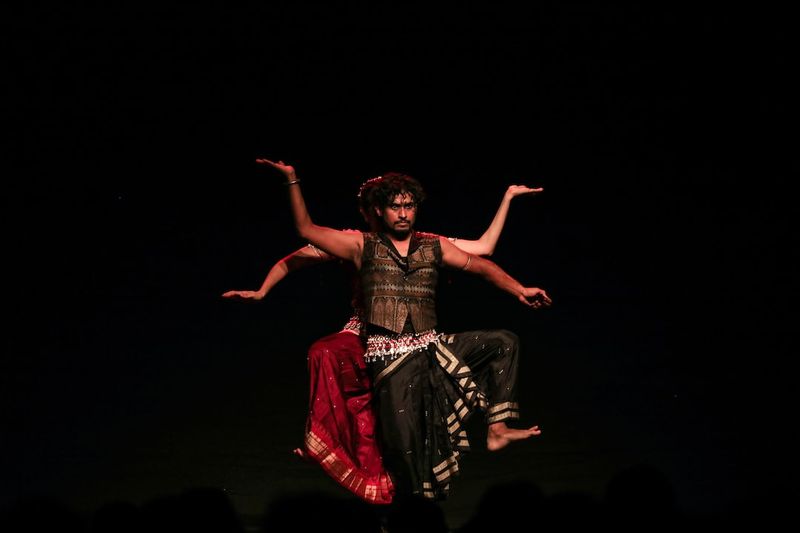Rocky Aur Rani Kii Prem Kahaani Film Review
Karan Johar’s Cultural Clash and Excess
Karan Johar is known for his eye-popping cinematic blowouts, as seen in his previous films like “Kuch Kuch Hota Hai” and “Kabhi Khushi Kabhie Gham.” However, his latest comedy-drama, “Rocky Aur Rani Kii Prem Kahaani,” gives a sense of excess that sometimes clashes with its attempt to satirize the stinking-rich, dim-bulb Punjabi protagonist Rocky (played by Ranveer Singh). As the heir to a Delhi sweet empire, Rocky is a man brimming with self-esteem, claiming that he looks like the offspring of Prada and Gucci. While the film aims to poke fun at profligacy, it also occasionally indulges in it.
A Clash of Progressiveness and Tradition
“Rocky Aur Rani Kii Prem Kahaani” brings Ranveer Singh’s Rocky and Alia Bhatt’s Rani, an unlikely pair of lovers, face to face. Their families clash due to their divergent views on progressiveness and tradition. The movie showcases the struggle between the two clans, portraying how their mutual dislike becomes an obstacle in the course of true love. The central conflict in the film is bridging the intellectual gap between Rocky and Rani, who find themselves falling for each other against all odds. Rani, a hard-hitting Bengali TV journalist, takes on the task of bringing Rocky down a peg or two as they team up as impromptu matchmakers.
A Journey to Reunite Long-Lost Love
Adding to the film’s plot, Rocky’s grandfather (played by Dharmendra) starts calling out a woman’s name, which happens to be Rani’s grandmother (portrayed by Shabana Azmi). It turns out that the two grandparents had a memorable time together at a poetry symposium in the 1970s. To bring them back together, the younger generation embarks on a mission to reunite the long-lost lovebirds. However, their own love story faces challenges and hurdles from their traditions and families.
An Unconventional Try-Before-You-Buy Arrangement
In an unconventional twist, Rocky and Rani decide to spend three months in each other’s households, adopting a try-before-you-buy arrangement. This arrangement leads to a Wife Swap-like scenario, which becomes the focus of the film’s second half. As the story unfolds, the clash between progressiveness and tradition takes center stage, resulting in numerous dramatic conflicts. For instance, Rocky finds himself speaking out against cancel culture, while Rani’s mother confronts him about his discomfort while shopping for bras. The film explores these clashes in a fascinating way.
The Finale: A Burst of Rose Petals and Pink
“Rocky Aur Rani Kii Prem Kahaani” culminates in a grand finale that outshines even Barbie’s world. With a flurry of rose petals and a vibrant display of pink, the film embraces excess once again, creating a spectacle that leaves audiences visually overwhelmed.
Addressing the Clash Between Progressiveness and Tradition
One of the most intriguing aspects of “Rocky Aur Rani Kii Prem Kahaani” is its attempt to explore and address the clash between progressiveness and tradition. By incorporating unlikely dramatic conflicts, the film delves into the complexities and challenges faced by individuals navigating the tensions between modernity and deep-rooted customs. Through the characters of Rocky and Rani, the film prompts viewers to reflect on these societal conflicts, offering a lens through which to examine our own cultural clashes.
Editorial: Satire or Celebration?
As “Rocky Aur Rani Kii Prem Kahaani” attempts to satirize the clash between progressiveness and tradition, it must be questioned whether it successfully strikes the right balance between critique and celebration. While satire can be a powerful tool to comment on societal issues, there is a risk of undermining its effectiveness when indulging in the very excesses it seeks to criticize. By glamorizing opulence and extravagance, the film blurs the lines between satire and endorsement, making it a challenge for audiences to discern the intended message.
Furthermore, the film’s take on cultural clashes could be seen as superficial, relying on exaggerated stereotypes to generate laughter rather than deep introspection. While comedy can act as a catalyst for introspection, it would be remiss not to explore the depth of the issues at hand. Provoking thought and engaging in meaningful conversations about progressiveness and tradition requires a delicate balance of humor and substance.
Advice: A Film Worth Watching with Caveats
For those seeking an entertaining Bollywood experience, “Rocky Aur Rani Kii Prem Kahaani” offers a visually stunning production filled with colorful extravaganza. The performances by Ranveer Singh and Alia Bhatt are commendable, bringing vibrancy and emotion to their characters.
However, it is important to approach the film with caution. It is a work that treads a fine line between satire and celebration, leaving audiences questioning its true intentions. While it attempts to address the clash between progressiveness and tradition, it does so in a manner that may be seen as superficial and lacking in depth.
Ultimately, “Rocky Aur Rani Kii Prem Kahaani” can be enjoyed as a light-hearted comedy with entertaining musical numbers and stunning visuals. Yet, it should not be taken as a profound commentary on the cultural conflicts it seeks to portray. As viewers, it is important to critically engage with the film’s messages and themes, questioning the extent to which it successfully addresses the complex issues it aims to explore.

<< photo by Kunal Parmar >>
The image is for illustrative purposes only and does not depict the actual situation.
You might want to read !
- “Rocky Aur Rani Kii Prem Kahaani” Sparks a Heartfelt Cinematic Journey: A Review of Karan Johar’s Latest Masterpiece
- “Bawaal: A Tasteless Redemption Romcom that Crosses the Line”
- Anupam Kher’s Heartfelt Guru Purnima Tribute
- Unveiling the Personal Motivation Behind ‘They Cloned Tyrone’
- Bird Box Barcelona’s Cowardice Hinders its Narrative Potential
- Extraction 2 Raises the Bar: A Gripping Review of IGN’s Latest Film Analysis
- Actor Mangal Dhillon Reflects on his Career in Indian Television and Film Industry




